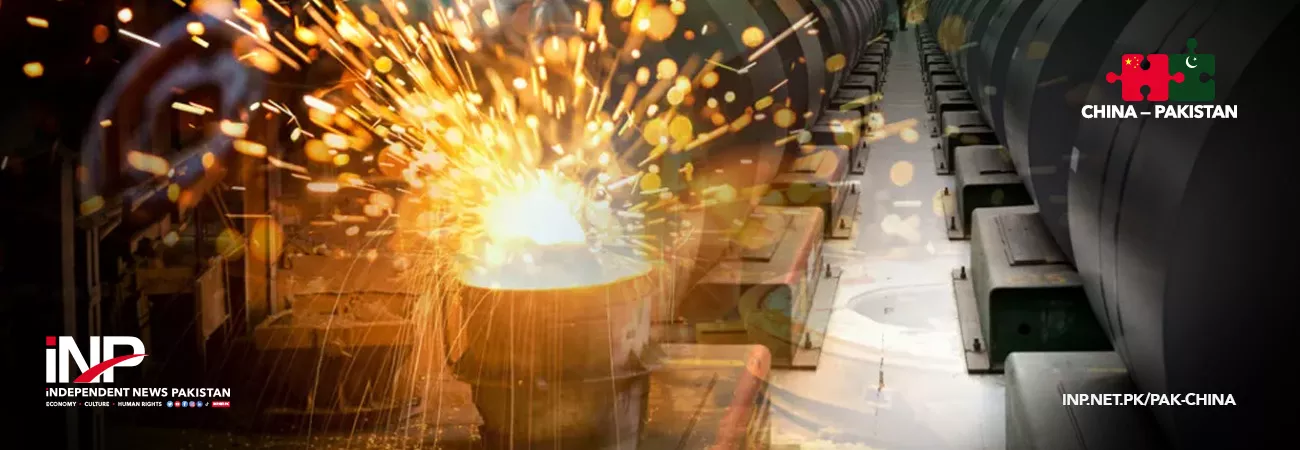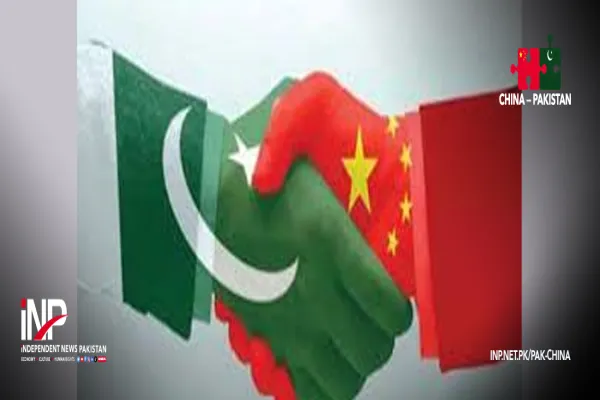i NEWS PAK-CHINA
“China can transfer its technology and equipment to Pakistan to promote the upgrading of Pakistan’s steel industry,” said Li Sheng, General Manager of the Pakistani Branch of China First Metallurgical Group Co., Ltd. in an interview with Gwadar Pro. Li added, “with China's transfer of technology and equipment, Pakistan's steel industry can be more concentrated and more environmentally friendly, because it can make better use of the existing low-quality mineral resources.” The output of the steel industry in Pakistan is far from enough to meet the needs of its domestic market. According to Steel Statistical Yearbook, 2020 and data from World Steel Association, Pakistan’s domestic demand for steel and iron averages 7.3 million tons per year, while its annual production is only 3.8 million tons. To narrow the demand-supply gap, Pakistan has been importing from different countries, incurring excessive costs.
The poor quality of Pakistan’s mineral resources is one of the main reasons for its dependence on steel imports. Meanwhile, the mineral resources are relatively concentrated in Balochistan and Khyber Pakhtunkhwa where the situation is relatively complicated, making it difficult to well exploit the mineral resources. While on the face of it, Pakistan’s steel industry is relatively backward, the overall potential for development is huge. Li Sheng analyzed, “in the upstream, its domestic mineral resources are rich and coal and iron ore reserves are huge; in the downstream, Pakistan's real estate and construction services industry is developing rapidly, and the steel demand is increasing, which is very conducive to the development of the industry.” Pakistan has a mountainous terrain covering more than 60% of the country. Historically frequent geological activities have generated a large number of mineral resources. According to Li’s research, Pakistani iron ore is stored across the country, mainly in Punjab and Balochistan, with proven mining reserves of about 950 million tons.
Highlighting that the steel industry is the backbone of Pakistan’s development and contributes 5% to the national economy, Wajid Bukhari, Secretary General of Pakistan Association of Large Steel Producers (PALSP) told Gwadar Pro that over 20 major steel industrial units were struggling towards diversification. It is essential to improve the steel competitiveness of Pakistan at the root level. Hassan Duad Butt, senior advisor of FF Steel highlighted that the Belt and Road Initiative and the construction of the China-Pakistan Economic Corridor have driven the robust development of Pakistan's construction market and industrial adjustment. “The development of industry brings greater demand for steel, which requires Pakistan’s steel industry to expand production capacity. The cooperation with China will address the existing problems of backward technology and low efficiency in Pakistan’s steel industry, which is a direction for the complementary development of both countries,” Hassan added.
Credit: Independent News Pakistan-INP









